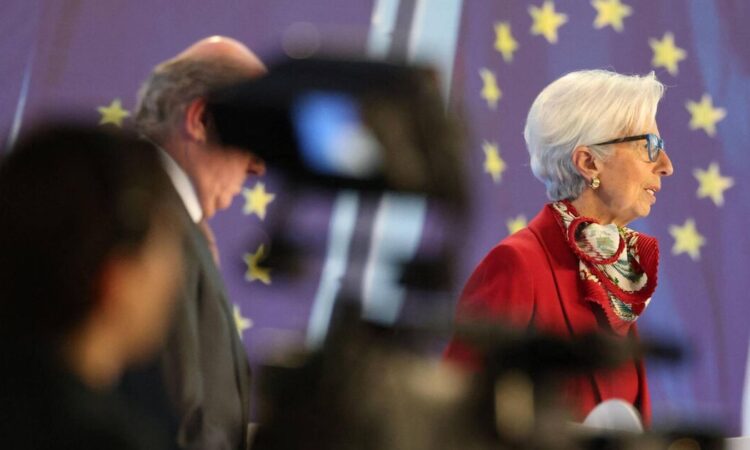
The European Central Bank — led by president Christine Lagarde — may need to continue raising interest rates beyond this month to bring inflation back to target, ECB policymakers said at their last meeting according to the latest published minutes.
The ECB raised its interest rates to their highest level in 22 years at its gathering in the middle of June and said a ninth consecutive hike was all but guaranteed in July as it predicted inflation would stay above its 2% target through the end of 2025.
The ECB’s account of that meeting showed rate increases might continue at the central bank’s gathering in September.
“It was seen as essential to communicate that monetary policy had still more ground to cover to bring inflation back to target in a timely manner,” the ECB said.
“The view was held that the Governing Council could consider increasing interest rates beyond July, if necessary,” it said.
It added market expectations at the time — which priced in rate hikes in June and July and a 20% probability of an additional 25 basis-point increase afterwards followed by cuts in the first half of 2024 — “could be judged as insufficient to bring inflation back” to 2%.
Data since that meeting showed the eurozone economy losing steam and inflation in the area falling for a third straight month in June.
But so-called core prices, such as those for services, have been rising stubbornly fast and aren’t expected to relent soon, leaving the door open to a further rate hike by the ECB in September.
Still, policymakers agreed to follow a “data-dependent approach” and “meeting-by-meeting optionality” to decide on rates beyond July. The ECB raised borrowing costs by a quarter of a percentage point in June but the account showed “a preference was also initially expressed for raising the key ECB interest rates by 50 basis points”.
It also decided to stop replacing bonds bought uner its Asset Purchase Programme when they mature although one policymaker proposed “deferring the decision to a later date” to assess how the market would digest the repayment of half-a-trillion-euros worth of central bank loans.
Meanwhile, eurozone industrial production rose less than anticipated in May — adding to signs that manufacturing is struggling to regain momentum. Production shrank 2.2% from a year ago, falling well short of analysts’ expectations. As the eurozone battles to exit its downturn, manufacturing is proving to be the biggest drag on growth. In Germany, Europe’s largest economy, industrial output suffered a surprise drop in May.





